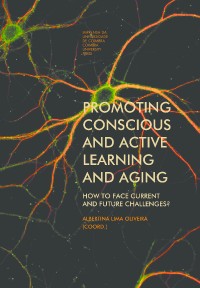Please use this identifier to cite or link to this item:
https://hdl.handle.net/10316.2/32525| DC Field | Value | Language |
|---|---|---|
| dc.contributor.author | Pinto, Margarida | |
| dc.contributor.author | Figueiredo, Daniela | |
| dc.contributor.author | Marques, Alda | |
| dc.contributor.author | Rocha, Vânia | |
| dc.contributor.author | Sousa, Liliana | |
| dc.date.accessioned | 2014-07-03T09:33:18Z | |
| dc.date.accessioned | 2020-09-10T11:19:40Z | - |
| dc.date.available | 2014-07-03T09:33:18Z | |
| dc.date.available | 2020-09-10T11:19:40Z | - |
| dc.date.issued | 2013 | - |
| dc.identifier.isbn | 978-989-26-0732-0 (PDF) | |
| dc.identifier.uri | https://hdl.handle.net/10316.2/32525 | - |
| dc.description.abstract | Formal caregivers’ health can affect the quality of care provided in long-term care settings. Therefore, this study aimed to analyze formal caregivers’ health perception and how it varies according to socio-demographics, working conditions and other health-related variables. A cross-sectional study with 170 formal caregivers was performed in the central region of Portugal. A structured questionnaire based on International Classification of Functioning, Disability and Health Checklist (ICF- -Checklist) was used to collect information about socio-demographic data, working conditions and health status. Formal caregivers reported a better perception of mental than physical health. Statistically significant differences in physical health perception were found according to age, educational levels, marital status, work experience, reasons for choosing job, medication intake, physical pain and functionality. Self-reported mental health was also significantly different according to educational levels, physical pain and functionality. The results highlight that formal caregivers mainly perceive themselves as being physically overloaded. Thus, long-term care institutions should invest in interventions to prevent and alleviate physical and emotional overloads and promote strategies for self-care. | eng |
| dc.language.iso | eng | - |
| dc.publisher | Imprensa da Universidade de Coimbra | por |
| dc.relation.ispartof | http://hdl.handle.net/10316.2/29856 | por |
| dc.rights | open access | - |
| dc.subject | Formal caregivers | eng |
| dc.subject | Long-term care | eng |
| dc.subject | Working conditions | eng |
| dc.subject | Health | eng |
| dc.title | Formal Caregivers' health characterization and self-perception: implications for long-term care practicess | por |
| dc.type | bookPart | por |
| uc.publication.collection | E-book | por |
| uc.publication.firstPage | 247 | - |
| uc.publication.lastPage | 262 | - |
| uc.publication.location | Coimbra | por |
| dc.identifier.doi | 10.14195/978-989-26-0732-0_13 | - |
| uc.publication.digCollection | PB | por |
| uc.publication.orderno | 13 | - |
| uc.publication.area | Ciências Sociais | por |
| uc.publication.bookTitle | Promoting conscious and active learning and aging: how to face current and future challenges? | - |
| uc.publication.manifest | https://dl.uc.pt/json/iiif/10316.2/32525/212624/manifest?manifest=/json/iiif/10316.2/32525/212624/manifest | - |
| uc.publication.thumbnail | https://dl.uc.pt/retrieve/11189904 | - |
| uc.publication.parentItemId | 53190 | - |
| uc.itemId | 70560 | - |
| item.grantfulltext | open | - |
| item.fulltext | With Fulltext | - |
| Appears in Collections: | Promoting conscious and active learning and aging: how to face current and future challenges? | |
Files in This Item:
| File | Description | Size | Format | |
|---|---|---|---|---|
| promoting_artigo13.pdf | 513.78 kB | Adobe PDF |  |
Items in DSpace are protected by copyright, with all rights reserved, unless otherwise indicated.
